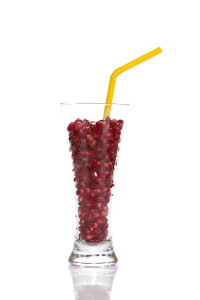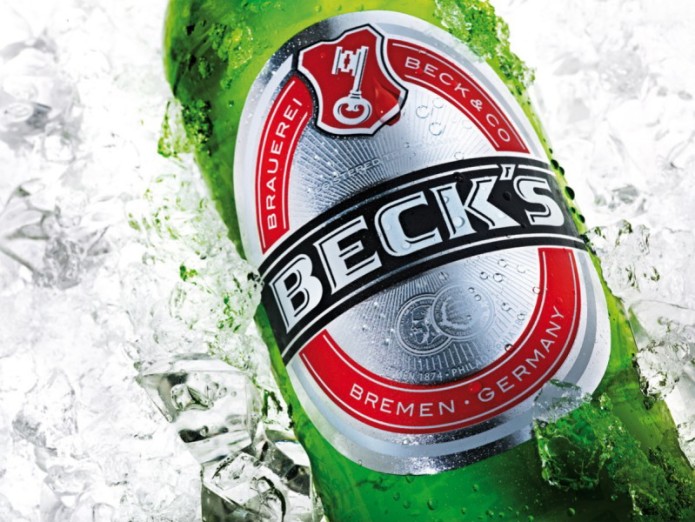
By: Brent E. Johnson
** Coca Cola Prevails in false Advertising Case Bought By Pom Wonderful – Trying to Protect its Pomegranate Juice Market – While at the Same Time Settling Class Actions **
Pom Wonderful lost its 7 1/2 year battle against Coca-Cola this week after a nine person jury in California found that Coke was not misleading consumers with its Minute Maid division’s “Pomegranate Blueberry Flavored Blend of 5 Juices” which contained only a half-percent of pomegranate and blueberry juice. Pom Wonderful LLC v. The Coco-Cola Co., No. cv-08-06239-SJO (MJWX) (C.D. Cal. March 21, 2016) (Dkt. 732). Pom had argued that the product’s labeling, which included pictures of all five fruits with the pomegranate dominating (although the apple was pretty darn big too) and the fact that “Flavored Blend of 5 Juices” was in smaller print below “Pomegranate Blueberry” was intended to “hoodwink” consumers into believe that pomegranate and blueberry juices were significant components of the product. In addition, Pom pointed to the color of Minute Maid’s juice in its clear plastic bottles, which resembled pomegranate juice (i.e., red). Pom’s attorneys told the jury that Coke leached off of the hard work and money that Pom had invested in growing the pomegranate juice market by creating a cheap juice that Pom’s customers would be tricked into buying due to the cost differential and the belief that they were getting the healthy benefits of pomegranate juice. Pom sought $77.6 million in lost profits.
Coke’s principal defense was simple — it’s label was accurate and complied with FDA guidelines. However, it is worth noting that Coke recently settled – subject to preliminary and final court approval — a putative consumer class action, Niloofar Saeidian v. The Coca Cola Company, Case No. 09-cv-06309, which was filed in the Central District of California approximately one year after Pom filed its lawsuit and which made the same deceptive labeling allegations on behalf of a nation-wide class of consumers who purchased the juice. Interestingly, both the Pom and Saeidian cases are before Judge S. James Otero. The proposed class action settlement provides for full refunds to class members with proof of purchase (uncapped) and up to two vouchers for replacement products in Coke’s Minute Maid, Simply, Smartwater, Vitaminwater, Vitaminwater Zero, and Honest Tea brands (capped at 200,000 on a “first come, first served” basis). Coke also agreed to pay the administrative costs of the settlement (est. $400,000), attorney fees and costs not to exceed $700,000, a $5,000 incentive payment to Mr. Saeidian, and to donate $300,000 in product to Feeding America. Finally, during the pendency of the class action (and the Pom case for that matter), Coke discontinued Minute Maid’s Enhanced Pomegranate Blueberry Flavored Blend of 5 Juices and represented in the settlement that it has no plans to reintroduce it. Niloofar Saeidian v. The Coca Cola Company, No. 09-cv-06309, (C.D. Cal. Feb. 26, 2016) (Dkt. 192).
Does Coke regret settling the class action lawsuit less than a month before its triumph in Pom? The difference between the results highlights the stark differences between consumer class actions and Lanham Act false advertising cases. The latter, especially those not involving negative advertising – are notoriously hard on plaintiffs. First, surveys show that juries say they read labels – word for word – (see Persuasion Strategies National Jury Survey, 2015). It thus an uphill battle to convince them they have been misled by a label. Second, if a company dishes it out, it will almost surely have to take it (nobody’s ads are perfect after-all). In Pom, Pom Wonderful’s claim of misleading labeling was met by Coke asserting “unclean hands” — pointing the jury to an 2012 administrative law judge’s decision in a case brought by the FTC against Pom that Pom made unsubstantiated claims that its juice treated, prevented or reduced the risk of heart disease, prostate cancer, and erectile dysfunction (upheld by POM Wonderful, LLC v. F.T.C., 777 F.3d 478 (D.C. Cir. 2015)). This is likely a second critical underestimate of jurors’ typical behavior that worked against Pom. Most jurors react predictably to a party’s perceived hypocrisy. Third, most advertisements aren’t blatantly (legal term: “ literally”) false so the question of whether an ad or label is materially deceptive comes into play. Experts are hired to present bone dry surveys of consumer behavior, markets and perceptions of the offending ad that are subject to methodology challenges and sometimes clash with jurors’ own perceptions: “Why do we need an expert? Everybody knows what that means?” These experts’ opinions even conflict with the company’s own beliefs from time to time. Indeed, Coke’s counsel’s closing argument mocked Pom’s assertion that Minute Maid’s juice stole customers from Pom by quoting from some early “creative briefs” prepared by Pom’s marketing department that Pom’s target audience for certain ads was “health-conscious hypochondriacs,” juxtaposing that audience with Minute Maid’s target market — regular old families. And fourth, even if a corporate plaintiff successfully navigates these tough proof issues, it is left with the daunting task of proving that it suffered actual injury from its competitor’s ad and the amount of that injury in dollars – no easy task in multi-competitor markets that suffer the slings and arrows of shifting consumer tastes, new market entrants, the next “new thing,” and the fluctuation of the economy as a whole. Frequently, defense counsel in Lanham Act cases are willing to just poke holes in plaintiffs’ experts’ damage analyses through cross-examination and possibly their own experts’ critiques without proffering alternative damage calculations on the theory that offering alternative numbers is a tacit admission of liability and creates a floor. Coke eschewed this approach and called an expert who testified that, even accepting some of Pom’s forensic accountant’s premises, Pom’s damages would only be between $886,000 and $9.8 million – not $77.6 million (see also this post on the strategy for damages anchors). In the end, that tactical decision didn’t matter. In less than a day of deliberations, the jury determined that Coke’s blended juice did not mislead consumers about the amount of pomegranate juice in the bottle. Pom Wonderful LLC v. The Coco-Cola Co., No. cv-08-06239-SJO (MJWX) (C.D. Cal. March 21, 2016) (Dkt. 732).
One can assume that Pom went into this Lanham Act lawsuit against Coke with eyes wide open. Clearly Pom is sincere in its view that its hard work and research funding created the explosive growth in consumer demand for pomegranate juice and its market should not be hijacked by impostors. Pom had previously been to trial against Ocean Spray and Welch’s making similar Lanham Act claims to the ones asserted against Coke. In the Ocean Spray case, a two-week trial in the Central District of California at the end of 2011 resulted in a jury verdict that Ocean Spray did not deceptively advertise its “100% Juice Cranberry and Pomegranate” juice after two hours of deliberation. Pom Wonderful LLC v. Ocean’s Spray Inc., No. 2:09-cv-00565-DDP-R2 (C.D. Cal. Dec. 2, 2011) (Dkt. 552). The Welch’s case proved a pyrrhic victory for Pom – the Central District of California jury found in 2010 that Welch’s labeling of its juice as “100% Juice White Grape Pomegranate” was literally true but nevertheless deceptive yet concluded that Pom was unable to prove any injury. Interestingly, Welch’s – like Coke – settled two consolidated consumer class action lawsuits making the same claims as Pom five months after its victory over Pom. Pom Wonderful LLC v. Welch Foods Inc., No. 2:09-cv-00567-AHM-AGR (C.D. Cal. Sept. 13, 2010) (Dkt. 374).
In the end, the problem with Pom’s Lanham Act lawsuits – like many such cases – may be the plaintiff. Jurors are asked to find that the defendant deceived consumers, but then give the money to a competitor – not a particularly satisfying result. This is obviously not a problem in consumer class actions. In a Lanham Act case, if the advertising is negative and directly pointed at the competitor or if the advertisement is particularly naughty – for example, Blue Buffalo’s trumpeting that its premium priced dog food contained no byproducts when the company knew that it did (lesson: don’t mess with man’s best friend) – a jury will likely find liability and damages. But in the more common “literally true but deceptive” case, Lanham claims are a hard sell. In the triad of Pom cases, the only one in which actual consumers testified as to deception was Welch’s, which might have had something to do with the jury’s finding of deception.

